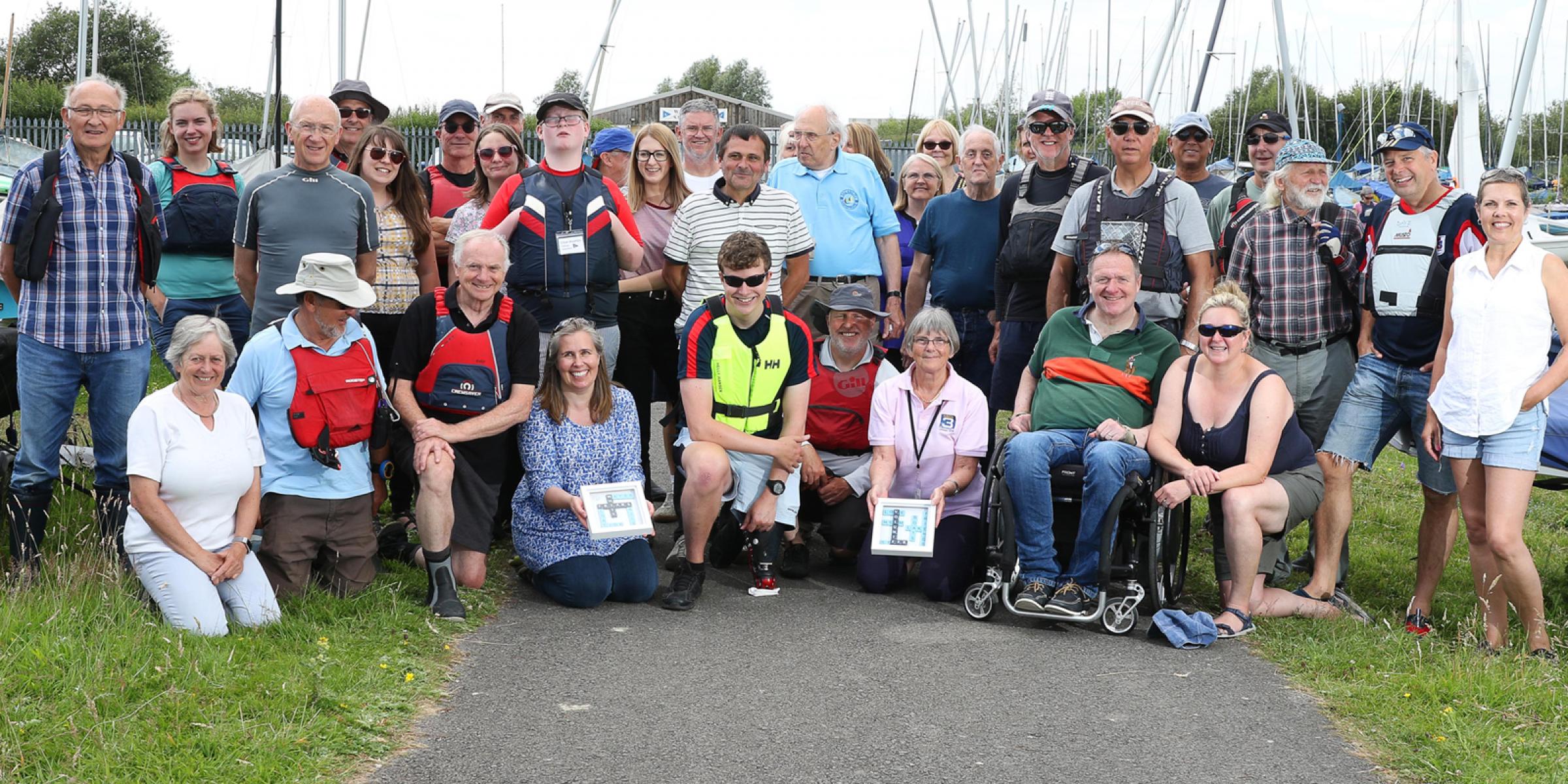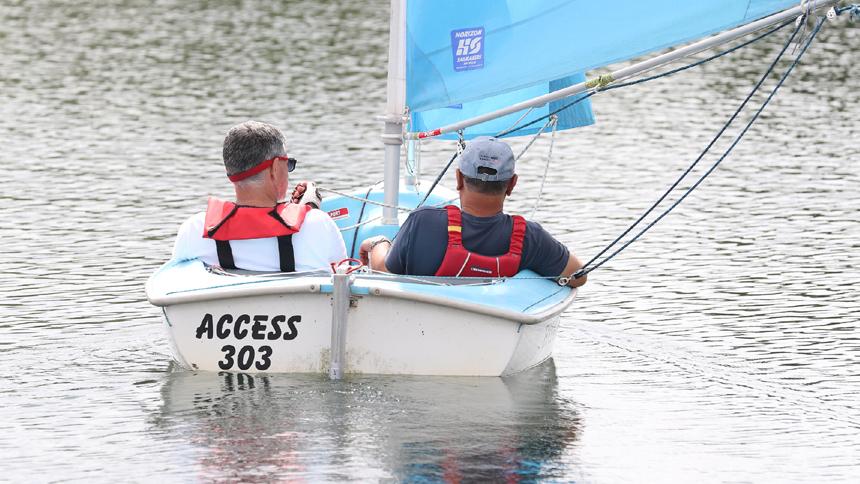
Plain sailing: Making it easier to take part
Sailing can offer relaxation, friendship and activity for people with dementia.
Every week for six months of the year, Whitefriars Sailing Club at the Cotswold Water Park welcomes the Forget Me Not group from Swindon. They encourage people with dementia to get out on the water and enjoy sailing.
This is part of the Wiltshire club’s Sailability programme, which enables people with disabilities, or who aren’t as mobile as they once were, to lead more active lives and be part of their community.
‘We try to understand each person, and either get them sailing independently or get them with a buddy just going out and enjoying it on a therapeutic basis,’ says David Durston, Principal of Sailability at the club.
‘Whatever your age or sailing ability – diehard racer, newcomer to sailing or you simply love mucking about on the water – we’re keen to make sailing fun and accessible for all.’

Being on the water can offer peace and quiet.
Boats at Whitefriars have special adaptations, such as more supportive seating that helps keep the sailor in the centre of the craft. They are also very stable, and some cannot capsize at all. Some can be worked electrically for people who wouldn’t be able to manage ropes, while others can be operated by blowing and sucking air through special controls.
A large pontoon has been purpose-built to be accessible and stable for wheelchairs and people with walking difficulties. Secure hoists are also available on both the pontoon and the shore.
Relaxing experience
Harry Davis, who is in his early 60s and living with dementia, has been sailing with the Forget Me Not group for more than three years.
‘I enjoy coming here and I’ll keep coming for as long as I can,’ says Harry.
‘I like coming sailing because it’s relaxing to be able to get out on the water,’ he says. ‘It’s a little bit of a challenge trying to remember what ropes to pull and which way to turn, but it’s not strenuous, there’s no hassle. I enjoy coming here and I’ll keep coming for as long as I can.’
Experienced volunteers are on standby in safety boats throughout Sailability sessions. Group members can also sail with a volunteer until they get a feel for the wind and learn the broad principles of sailing.
Alzheimer’s Society is working with Sailability to encourage volunteers – who don’t necessarily have to be on the water – to become Dementia Friends so that they can best support people with dementia.
Nick, a volunteer, and Forget Me Not attendee, Derek, used to work together in Swindon and have now been reunited on the water.
‘It’s good fun and I get a lot of pleasure helping these guys and ladies, and it helps me as well,’ says Nick. ‘It’s very rewarding, and Derek enjoys the quiet when we’re out sailing.’
Once a sailor is more confident, they can begin to sail independently or with others. They may also work towards special certification, learn how to race or even become an instructor themselves.
Trying new things
Forget Me Not member Christine, who also has dementia, hadn’t ever sailed prior to joining the group.
‘I’ve never been a person who sits around – it’s great to try things you’ve never tried before as it keeps you thinking,’ she says. ‘I enjoy everything about sailing, especially when the sun’s shining.’
‘The volunteers who help us are just brilliant,’ says Christine.
She particularly appreciates the supportive side of the sessions.
‘The volunteers who help us are just brilliant,’ she says. ‘Everyone at the sailing club is so kind and friendly and everyone helps one another, which makes it something that you really appreciate and enjoy.’

Volunteers are always on hand to support sailors.
Adapting activities
Sailability is a national project run by the Royal Yachting Association (RYA) at about 225 UK sites. ‘It’s about socialising, doing new things, getting out in the environment and being physically active,’ says Leon Ward, Disability Development Officer for RYA Sailability.
‘Learning new skills and building confidence is really important for people’s mental health and wellbeing.’
Alzheimer’s Society and Sport England are calling on other leisure centres, sports clubs and gyms to follow Whitefriars in reducing the barriers that can prevent people affected by dementia from taking part in sport and physical activity.
‘We want to see this happening across the country,’ says Steven McFadyen, our Programme Partnerships Officer for Sport and Leisure.
‘It’s about being open and adapting what you have to enable people with dementia to continue doing the activities they love.’
Get involved
How to stay active when you have dementia


